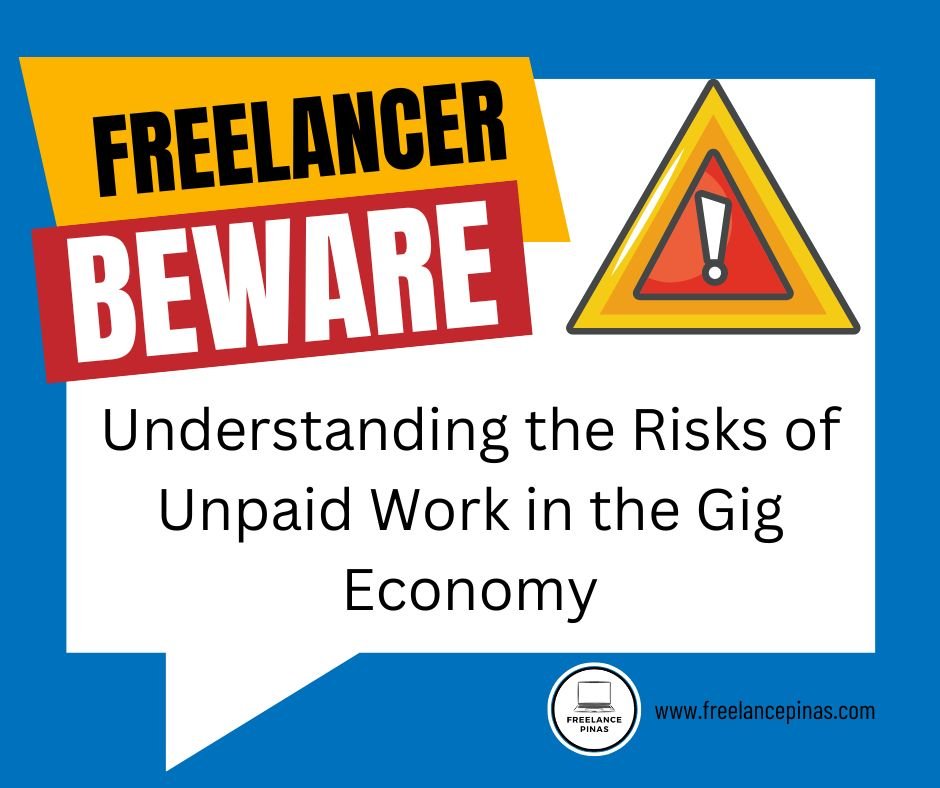In the bustling landscape of freelancing in the Philippines, opportunities abound for individuals seeking flexibility, autonomy, and diverse income streams. However, amidst the allure of freelancing lies a significant risk that freelancers must be vigilant about: unpaid work. In this article, we’ll delve into the risks of unpaid work in the gig economy and explore strategies for Filipino freelancers to protect themselves and their livelihoods.
The Promise vs. Reality
1. Unfulfilled Agreements
Many Filipino freelancers find themselves in situations where clients fail to fulfill their end of the agreement, leaving them without compensation for their time, effort, and expertise.
2. Scope Creep
Scope creep occurs when clients expand the scope of the project beyond the initially agreed-upon terms without adjusting the compensation accordingly. This can lead to overwork and dissatisfaction among freelancers.
Impact on Filipino Freelancers
1. Financial Strain
Unpaid work can have a significant impact on the financial stability of Filipino freelancers, making it challenging to cover expenses, pay bills, and sustain their livelihoods.
2. Loss of Time and Opportunity
Investing time and effort into unpaid work means less time available for paid opportunities, hindering freelancers’ ability to grow their businesses and pursue lucrative projects.
Strategies for Protection
1. Clear Contracts and Agreements
Freelancers should establish clear and detailed contracts with clients outlining the scope of work, deliverables, timelines, and payment terms to mitigate the risk of unpaid work.
2. Request Deposits or Milestone Payments
Requesting deposits or milestone payments upfront can help freelancers secure a portion of the payment before starting work, providing some financial protection in case of non-payment.
3. Set Boundaries and Manage Expectations
Freelancers should communicate boundaries and manage client expectations effectively to prevent scope creep and ensure that projects stay within the agreed-upon parameters.
4. Document Everything
Keeping thorough records of communications, agreements, and project milestones can serve as evidence in case of disputes over payment or scope of work.
5. Pursue Legal Recourse if Necessary
In cases of non-payment or contract violations, freelancers may need to pursue legal recourse through small claims court or mediation to recover unpaid fees and protect their rights as independent contractors.
Conclusion: Navigating the Gig Economy Safely
Freelancing in the Philippines offers tremendous opportunities for individuals to showcase their skills and talents on a global platform. However, the risks of unpaid work underscore the importance of diligence, communication, and proactive measures to protect against financial loss and exploitation.
By understanding the risks, setting clear boundaries, and advocating for fair compensation, Filipino freelancers can navigate the gig economy with confidence and resilience, ensuring that their contributions are valued and respected. Remember, freelancer beware, but also freelancer empower.
